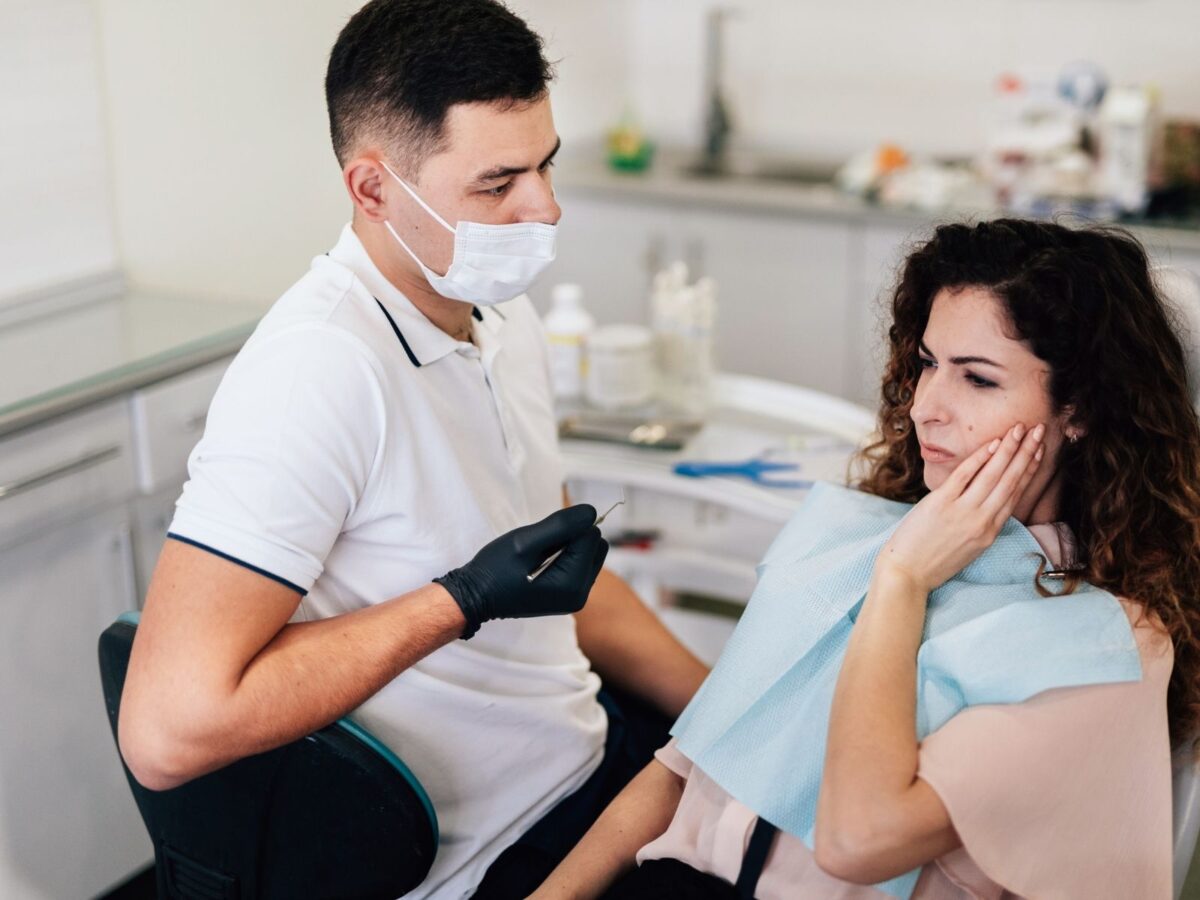Blog
Dental hygiene tips for healthy teeth & gums

How To Minimize Discomfort After Wisdom Tooth Removal
Getting a tooth extracted might create stress for many patients. The widespread dental procedure receives painless outcomes through experienced dental professionals, contemporary dental equipment, and soft sedation protocols. A certain degree of discomfort after tooth extraction is typical. You can control your unpleasant symptoms from the extraction treatment.
What Makes Wisdom Teeth Such a Problematic Matter?
People develop wisdom teeth as adults while their other teeth have previously secured permanent positions. These new teeth do not have enough room to fit properly, so extraction is the typical solution.
A wisdom tooth partially exposed through the gum becomes an ideal spot where food can easily become trapped. The partially exposed position of wisdom teeth creates a significant challenge even for people who consistently follow their oral care routine, which may result in infection and tooth decay.
A wisdom tooth that successfully emerges through the gum line will still present potential complications. The anomalous growth of these teeth leads to mouth interior irritation while affecting the nearby gum tissues. Such teeth have the potential to apply pressure that affects the structure of neighboring teeth.
Monitoring the development of wisdom teeth becomes possible through regular appointments with a wisdom tooth extraction dentist during the teenage years and early adult stages.
Our dental clinic maintains extensive knowledge regarding the course of action after oral surgical procedures. You will find 8 effective methods for quick recovery in the following text.
Apply ice to the swelling
The dental tooth extraction procedure leaves the patient with painful consequences and visible post-operative effects. Some patients develop minor bruising and jaw discomfort shortly after the tooth extraction. Cold helps decrease swelling, and it serves as an effective pain reliever.
The prevention of frostbite requires completely refraining from using ice directly on the skin’s surface. You might be unable to sense numbness because of the ice’s therapeutic effects or because it has stayed too long in the area. You should hold ice-wrapped towels for 15-minute intervals, then remove them for the next 15 minutes.
Use a hot compress
A hot compress works when you lack access to ice for pain reduction and swelling control. Use similar timing when using hot compresses because alternating between 15 minutes of use and 15 minutes of rest is equally essential.
Applying heat helps eliminate facial stiffness through improved blood circulation, which reduces swelling in the area. The most efficient pain relief tools include hot water bottles and heating pads, which can be replaced with a hot, wet washcloth. The optimal temperature for your compress should be around 115°F (46°C), but you must test against comfort levels.
Sip drinks
Most beverages should be avoided during the first two days following an oral tooth-removal procedure. Hydration requires water consumption, but other drinks create resistance to the healing process.
Drinking after surgery always requires the use of straws to be strictly avoided. A blood clot must form to ensure proper wound healing because straws have the ability to remove the clot physically.
Review the provided order to determine safe times to drink your preferred beverages while healing occurs.
- Pop: 48 hours+. Bubbles from pop beverages such as other carbonated drinks risk removing the developing blood clot.
- You should select iced coffee whenever you need your morning coffee before the 24-48 hour waiting period. Hot beverages lead to discomfort and worsen the healing area.
- Alcohol: 48 hours+. Using alcohol with pain medications presents extreme safety dangers to a person’s health. Our advice is to delay consuming medication until your pain medications are finished.
- Acidic Drinks: 1 week+. Consuming acidic beverages such as lemonade or orange juice will irritate wounds, preventing healing. Iced coffee provides a suitable alternative to acid-containing beverages with citric acid content.
- Eat soft foods
You can discuss food choices based on your understanding of permitted beverages. The soreness in your jawbone and your mouth area may become more comfortable in the postoperative period, yet keeping an eating habit remains essential. Proper healing requires enough nourishment.
Soft food choices lessen chewing pain and prevent stitches and blood clots from coming loose. Do not consume small items such as nuts and seeds because they might become stuck in the socket. Make smooth materials from your regular foods or pick from these proposed options.
- Smoothies
- Blended soups/broth (cooled)
- Scrambled eggs
- Apple sauce
- Pudding
- Apply pressure inside your mouth
The bleeding process is completed within four hours after surgery, although it can extend up to twenty-four hours. The body typically leaks small amounts of blood two weeks after dental surgery. Genital gauze pressure will prevent bleeding from dental surgery.
The extraction site needs only a prepared piece of gauze to help stop bleeding. Hold the gauze pad gently between your teeth for 45 minutes to one hour and use the supplies your dental clinic gave you if needed, or try a damp teabag as an alternative.
Place a moistened black tea bag over the wounded site for 30 minutes because its tannins help blood clot like a semi-solid substance to stop blood flow. Please contact our office for help during significant bleeding episodes.
Follow directions for medications
Most patients find following this instruction difficult. People who handle pain well can manage it with basic Advil pills as their threshold is stronger. When you can tolerate OTC painkillers to manage your pain, you should continue using them exactly as the bottle instructs. However, some people will require doctor-approved pills for pain relief. Comply exactly with the dental care instructions for potent pain medication usage.
The antibiotic prescriptions stand separately from other medication protocols. Your dentist alone can provide the proper directions since these medicines require a prescription from dental offices. Patients most often fail to take all their prescribed antibiotics as directed. Follow your dentist’s directions to take all medications as recommended.
The bacteria cannot develop resistance to antibiotics when you take your full prescribed medication as directed.
Maintain oral care once recommended
Proper dental care practices help you preserve healthy teeth and gums. You must take extra care of your oral health since you just had wisdom teeth removed. Your usual oral care habits differ following oral surgery. Check out our tips below.
- Some dentists let patients clean their teeth very carefully after surgery, while other doctors advise waiting one day. Begin brushing again as soon as you feel able to do so gently. Take care when brushing around the wound.
- A regular mouthwash is not allowed for wisdom tooth extraction patients. Warm salt water rinses become possible on the day following your surgery. Rinse your mouth with salt water 3 to 5 times daily or after meals.
- You can begin flossing your teeth one day following the extraction procedure but must exercise caution near the surgical site.
- You raise the risk of dry sockets when you forcefully spit water or toothpaste following wisdom tooth removal. Urant liquids are directly in the sink to keep blood clots from breaking down.
Rest
Rest is essential for recovery. Our bodies perform most of the healing process during sleep, regardless of what brought us to rest. New patients struggle to sleep properly due to surgical pain in the early recovery phase. Follow the medicine instructions your dentist gives you. Place two pillows under your head to help decrease swelling during sleep.
Conclusion
Patients must understand that tooth extractions hurt and their recovery will be painful, too. The treatment plan your dentist recommends becomes simple to handle when you follow it while taking proper medications.
Do you need to have your wisdom tooth or another tooth extracted? Get in touch with Sinton Dentist.


